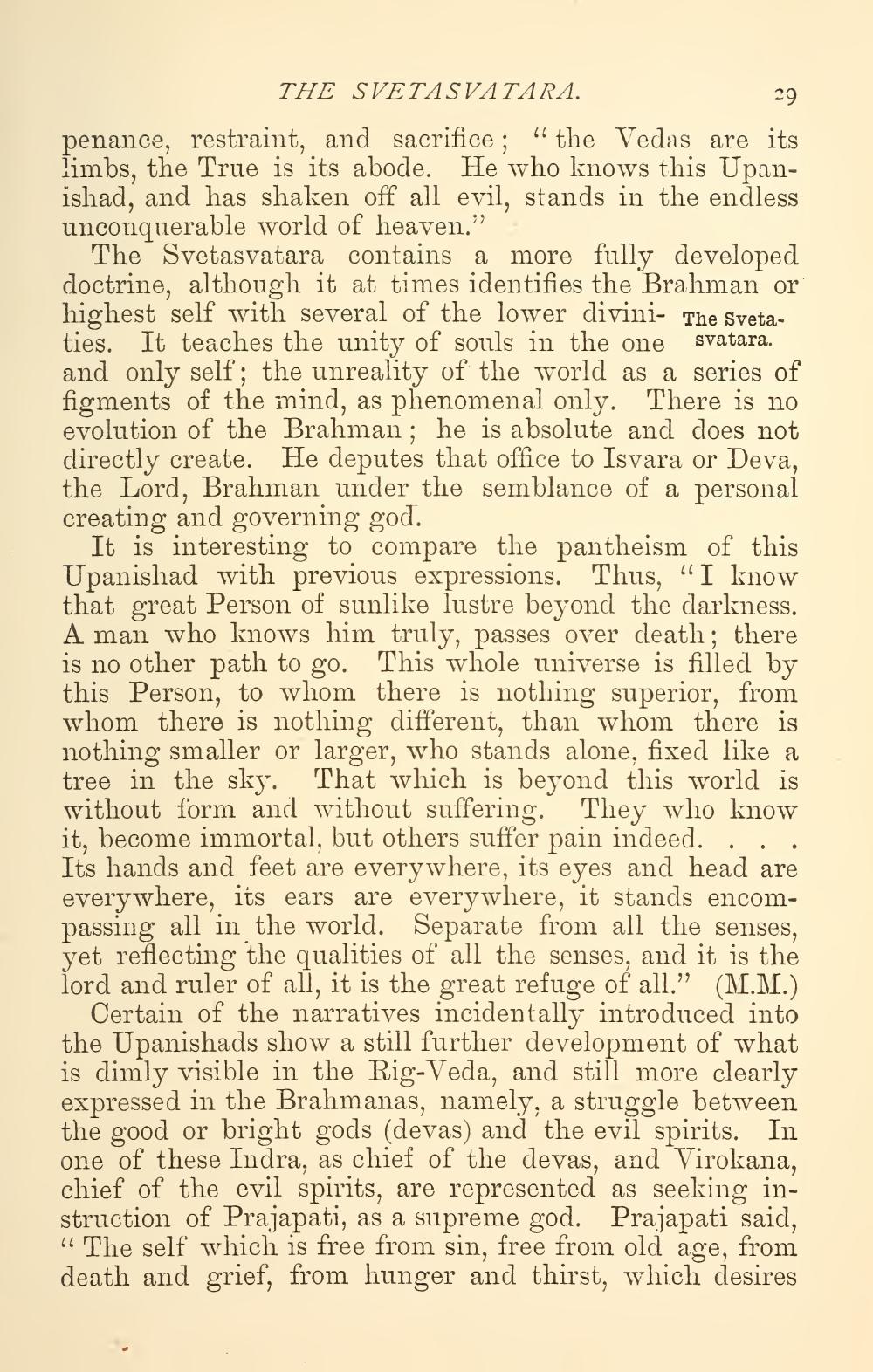________________
THE SVETASVATARA.
29
penance, restraint, and sacrifice; "the Vedas are its limbs, the True is its abode. He who knows this Upanishad, and has shaken off all evil, stands in the endless unconquerable world of heaven.”
The Svetasvatara contains a more fully developed doctrine, although it at times identifies the Brahman or highest self with several of the lower divini- The Svetaties. It teaches the unity of souls in the one svatara. and only self; the unreality of the world as a series of figments of the mind, as phenomenal only. There is no evolution of the Brahman; he is absolute and does not directly create. He deputes that office to Isvara or Deva, the Lord, Brahman under the semblance of a personal creating and governing god.
It is interesting to compare the pantheism of this Upanishad with previous expressions. Thus, "I know that great Person of sunlike lustre beyond the darkness. A man who knows him truly, passes over death; there is no other path to go. This whole universe is filled by this Person, to whom there is nothing superior, from whom there is nothing different, than whom there is nothing smaller or larger, who stands alone, fixed like a tree in the sky. That which is beyond this world is without form and without suffering. They who know it, become immortal, but others suffer pain indeed. Its hands and feet are everywhere, its eyes and head are everywhere, its ears are everywhere, it stands encompassing all in the world. Separate from all the senses, yet reflecting the qualities of all the senses, and it is the lord and ruler of all, it is the great refuge of all." (M.M.)
Certain of the narratives incidentally introduced into the Upanishads show a still further development of what is dimly visible in the Rig-Veda, and still more clearly expressed in the Brahmanas, namely, a struggle between the good or bright gods (devas) and the evil spirits. In one of these Indra, as chief of the devas, and Virokana, chief of the evil spirits, are represented as seeking instruction of Prajapati, as a supreme god. Prajapati said, "The self which is free from sin, free from old age, from death and grief, from hunger and thirst, which desires




